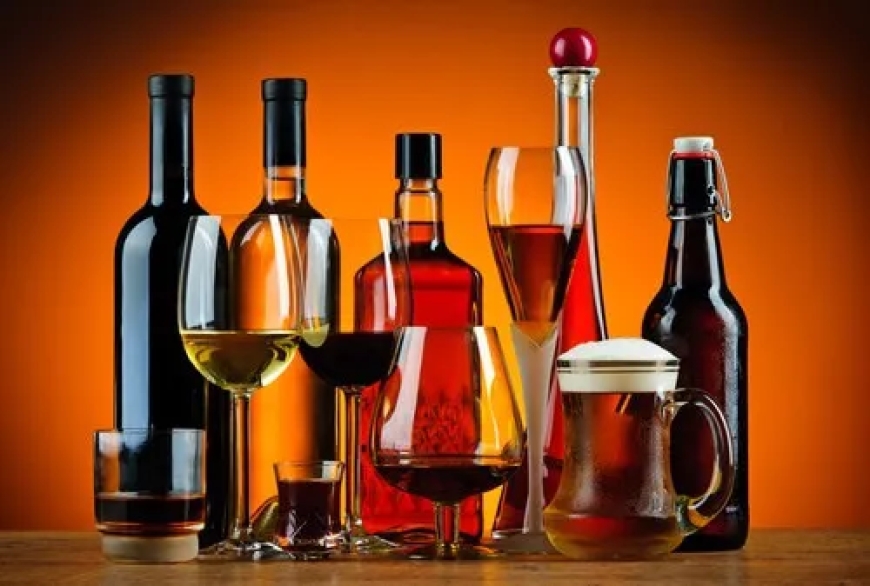Banning Celebrities & Influencers From Alcohol Ads Is Not A Solution: NACADA Told
Butita expressed concern about the move despite what NACADA terms as a valid intent to curtail alcohol abuse across the country.

Kenyan comedian and scriptwriter, Eddie Butita, has slammed proposals by the National Authority for the Campaign Against Alcohol and Drug Abuse (NACADA) seeking to ban celebrities and social media influencers from promoting alcoholic beverages.
In a statement released on Wednesday, July 30, hours after the authority released its National Policy for the Prevention, Management and Control of Alcohol, Drugs and Substance Abuse (2025) report, Butita expressed concern about the move despite what NACADA terms as a valid intent to curtail alcohol abuse across the country.
According to Butita, "the approach taken is misguided, uninformed, and fails to involve key stakeholders, especially content creators."
"As someone who has participated in responsible drinking campaigns, I’ve seen firsthand how strict codes of conduct ensure influencers promote safe, informed messaging. These campaigns are backed by mandatory training and clear rules against promoting irresponsible behaviour," stated Butita in part.

Comedian Eddie Butita. /FACEBOOK
He went on to outline that the main problem was not influencer marketing but rather the lack of regulation for the countless unmonitored posts promoting alcohol online, with the rising numbers on the internet that will not stop.
Butita argues that banning trained creators only removes structured, responsible messaging from the conversation and ends vital public sensitisation efforts. He further slammed the authority for not consulting the creators before moving ahead with publishing the proposals.
"We are not pawns in regulatory battles; we are partners in shaping modern communication. Instead of bans, NACADA should work with creators and industry players to co-develop ethical, informed guidelines for online alcohol promotion," he appealed, adding, "Let’s have a seat at the table. Let’s build better, together. Modern problems, modern solutions."
NACADA's policy to ban celebrity and influencer endorsements was viewed as effectively prohibiting alcohol brands from using celebrities, media personalities, influencers, or sports figures in promotional content. This drew uproar in the Kenyan showbiz space with a section of celebrities, including Femi One, accusing the government of frustrating a major source of income for this sector.
The policy was among many others that drew nationwide uproar, even though NACADA would reveal in a subsequent statement that the proposals were just that- proposals- and not an outright ban as initially reported.
The NACADA report focuses on curbing misleading alcohol advertising and protecting minors from exposure to harmful content. A key proposal is the Watershed Ban, which restricts alcohol advertisements on audio-visual platforms between 5:00 a.m. and 10:00 p.m.—a rule that also applies to foreign broadcasts. Additionally, anyone featured in these adverts must be at least 25 years old.
The report also proposes a ban on Lifestyle Marketing, which links alcohol consumption to success, attractiveness, popularity, or social standing.
To further safeguard children, the policy proposes a prohibition of alcohol branding on items designed for minors, including toys, school supplies, and clothing.
Strict limits were also fronted on digital advertising, including a ban on online and social media promotions of alcohol—whether local or foreign—something that would exterminate a major source of income for digital media platforms.
Furthermore, the policy proposes outlawing promotional strategies like free samples, discounts, and prize giveaways that encourage consumption.
NACADA, in its statement, has since revealed that it intends to develop a multi-sectoral implementation framework, bringing together stakeholders from government, industry, civil society, and the public, a process that will set out practical steps towards achieving the policy’s aims.
"Any proposal that requires legal backing will undergo a thorough law review process, which will be transparent and inclusive. Most importantly, public participation will be central to this process, enabling citizens, businesses, and interest groups to share their views and address any contentious issues before implementation," stated CEO Anthony Omerikwa.
Key Advertising Proposals Under the NACADA 2025 Policy
- Watershed Ban: No alcohol ads allowed on audio-visual platforms between 5:00 a.m. and 10:00 p.m.
- No Celebrity Endorsements: Celebrities, influencers, and public figures may not promote alcohol.
- Age Requirement: Only individuals aged 25 and above may appear in alcohol advertisements.
- Lifestyle Marketing Prohibited: Ads must not associate alcohol with success, beauty, or social status.
“Any advertisement of alcoholic products shall be expected to give factual information, not emphasise the strength or merit of alcohol, not negatively cast abstinence from alcohol consumption, and shall not depict alcohol consumption as a lifestyle,” NACADA warned.
- No Branding on Children’s Items: Alcohol logos banned from items like toys and school bags.
- Digital Advertising Ban: Alcohol promotion prohibited on all online platforms and social media.
- No Free Samples or Discounts: Promotions that encourage alcohol consumption outlawed.
- Outdoor Ad Restrictions: Advertising banned in residential areas, hospitals, government facilities, and within 300 metres of learning institutions.







